Forests
There’s a lot more to forests than trees. Forests and wildlife need each other to thrive, and we need forests to fight the climate crisis.
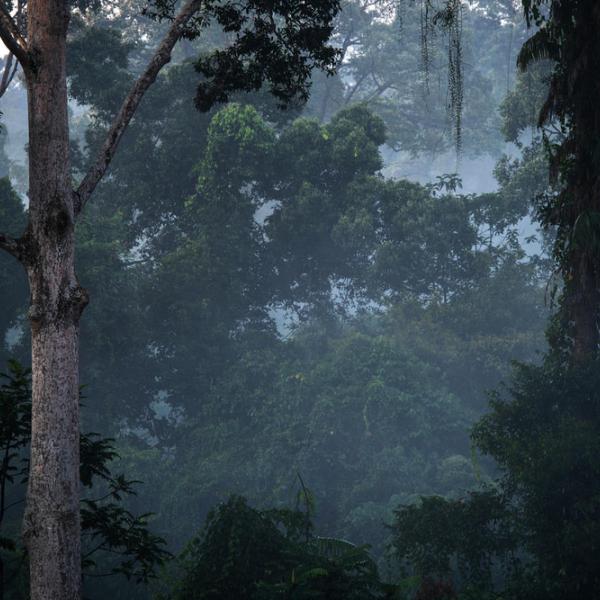
Dawn Chorus from Borneo Jungle
What defines a forest?
Our little blue planet is actually pretty green. Almost a third of the Earth’s land is covered by forest - large areas dominated by trees that are home to an abundance of plants and animals.
-
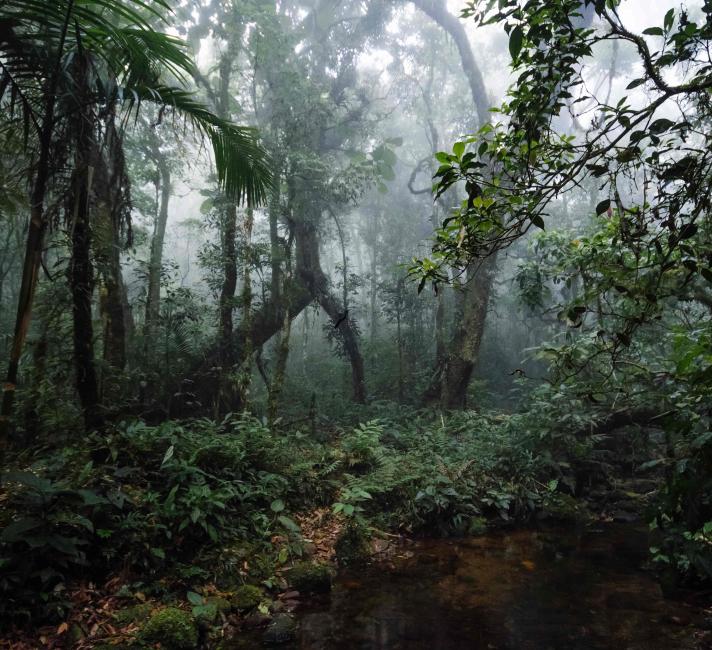 © Naturepl.com / Joao Burini / WWF
© Naturepl.com / Joao Burini / WWF -
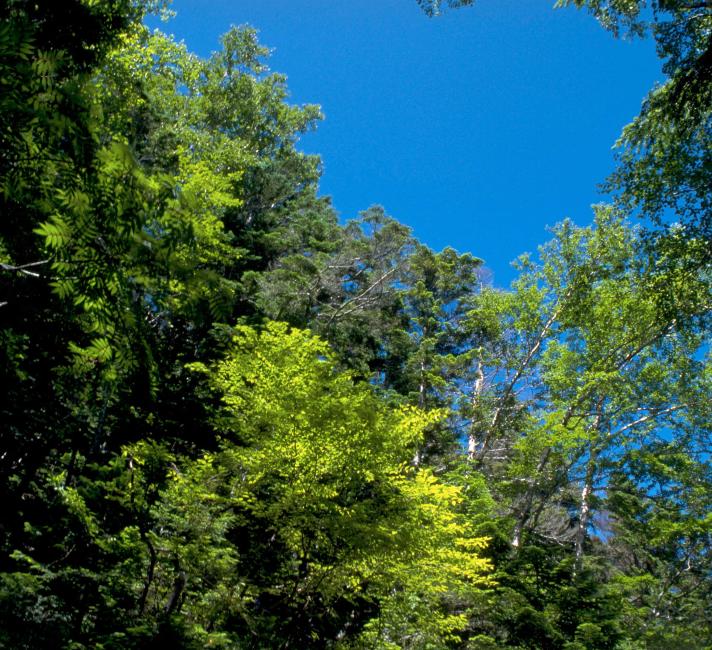 © WWF-Japan / Mima Junkichi
© WWF-Japan / Mima Junkichi -
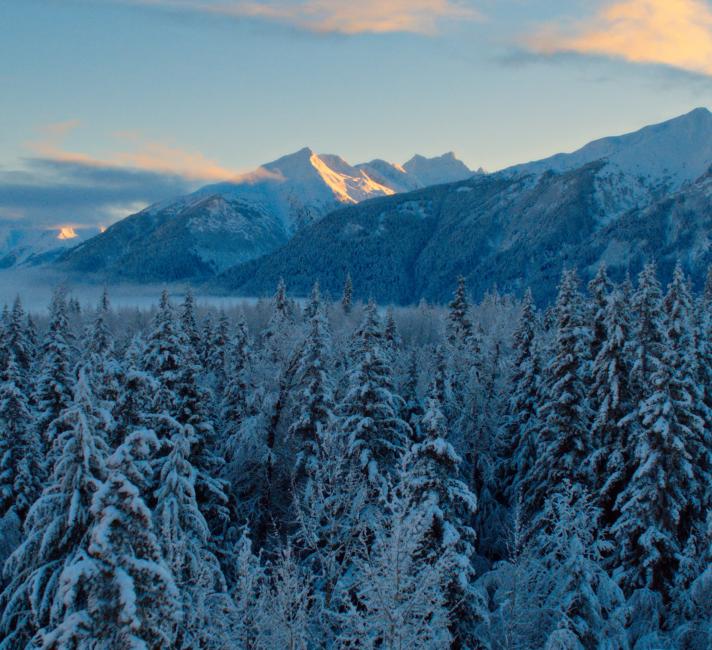 © Gene Cornelius / Silverback/Netflix
© Gene Cornelius / Silverback/Netflix
There are 3 types of forests:
-
Tropical Forests
Common to areas near the equator, such as Southeast Asia, Sub-Saharan Africa, and Central America. They include tropical rainforests, sub-tropical rainforests and mangroves. They are the warmest and often wettest forests on the planet and are some of the most species-rich ecosystems on earth. Even though they cover less than 10% of the world they are host to over half the world's species. Flora in tropical forests can include mangrove trees, Brazil nut trees, and African rosewood, to name but a few.
-
Temperate Forests
Found across eastern North America, Eurasia and parts of South America. There are both temperate forests and temperate rainforests. Temperatures vary throughout the year because of the four distinct seasons at these latitudes. Flora in temperate forests includes coastal redwoods, oaks and birch.
-
Boreal Forests
Found across Siberia, Scandinavia, and North America (Alaska and Canada). Temperatures in boreal forests are, on average, below freezing. Flora in boreal forests include conifers, spruce and fir trees. Boreal forests cover huge, remote areas which means they are really important carbon stores.
Wildlife that lives in forests
Here are some examples of the incredible animals that call forests home:
-
 © John Mackinnon / WWF
© John Mackinnon / WWFMore Close Giant Panda
There are an estimated 1,860 giant pandas in the wild. They are classified as Vulnerable on the IUCN Red List having been downlisted from Endangered to Vulnerable following decades of conservation work, but they still remain at risk. Pandas live mainly in temperate forests high in the mountains of southwest China. Giant pandas have a specialised diet of bamboo. This is a nutrient poor food source, so giant pandas must consume a large amount of bamboo – they spend around 14 hours per day eating up to 12.5kg of bamboo, and defecate more than 100 times daily!
-
 © Fiona Rogers
© Fiona RogersMore Close Orangutan
The conservation status of orangutans (meaning ‘person of the forest’ in Malay) is Critically Endangered, and its population is decreasing. Orangutans mainly eat fruit, making up 60% of their diet, such as mangoes, lychees and figs. But they also eat young leaves, flowers, insects and tree bark. Orangutans are known as gardeners of the forest, because they help spread seeds around, especially larger seeds that don’t get spread by smaller animals. Without that seed distribution, the rainforests of Borneo and Sumatra would be drastically different, and that would have impacts on all the people and animals that live in or use those rainforests. Orangutans spend almost all of their time in the forest canopy and need vast tracts of connecting forest to live in. They make their nest by pulling several large branches together, using smaller branches for a mattress and binding the structure together by weaving in more supple branches. In wet weather, they sometimes add a roof.
-
 © WWF
© WWFMore Close Jaguar
The conservation status of jaguars is Near Threatened, and their population trend is decreasing. There are an estimated 173,000 jaguars left in the wild. Jaguars are found in a variety of forest habitats, including mangrove swamps, lowland tropical moist forests and cloud forests. 76% of jaguars are found in the Amazon rainforest, making it the jaguar’s stronghold. Over 85 different species have been found in the jaguar’s diet, including capybaras, deer, monkeys, armadillos, iguanas, snakes and fish. Jaguars play an important role in maintaining the structure and function of the ecosystems they inhabit. As top predators, they help to keep a balance in the food chain where they live, playing an important role in controlling the populations of other species and promoting healthy ecosystems.
-
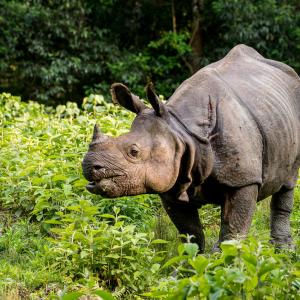 © Ola Jennersten / WWF-Sweden
© Ola Jennersten / WWF-SwedenMore Close Indian rhino
Indian rhinos are classified as Vulnerable, with an increasing population trend. Decades of successful conservation work brought the species back from only 600 individuals in 1975, to over 4000 now. The Indian rhino was once found in the large continuous forests of Bangladesh, Bhutan, Nepal and India along the Indus, Ganges and Brahmaputra River basins. They are now found in northern India and Nepal, spending their time in tall grasslands and forests around the Himalayas. Indian rhinos are grazers, feeding on mainly grasses but also some fruit, leaves, shrubs, tree branches and cultivated crops. Rhinos are ecosystem engineers, dispersing seeds of plants and fruit they’ve eaten through their dung.
-
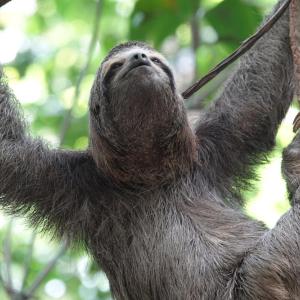 © Merijn van Leeuwen/ WWF-Netherlands
© Merijn van Leeuwen/ WWF-NetherlandsMore Close Sloths
Sloths can be found dwelling in trees in the forests of Central and South America. There are two different types of sloth, two-toed and three-toed, with six sloth species that are found in the Americas, mainly in the tropical rainforests of Central and South America. Sloths rely on a continuous rainforest canopy for survival as they are physically unable to traverse big gaps between trees.
-
 © naturepl.com Andy Rouse WWF.jpg
© naturepl.com Andy Rouse WWF.jpgMore Close Tiger
According to the IUCN Red List, the conservation status of tigers is classified as Endangered, and decreasing. However, due to conservation work, in 2022, the population of wild tigers in India is estimated to be a minimum of 3,167, an increase of 619 tigers from the 2018. Tigers have very larges ranges and so can be found in a variety of habitats, including tropical and sub-tropical forests, evergreen forests, mangrove swamps and grasslands. Recently tigers have been reported in the temperate forests of the Himalayas too. To protect just one tiger, we have to conserve an estimated 10,000 hectares of forest. Tigers prey on herbivores that feed and rely on forest vegetation. Tigers live, breed and hunt in forests and as apex predators, they are a sign of a large, healthy ecosystem. Securing tiger landscapes could help protect at least nine major watersheds, which regulate and provide freshwater for over 800 million people in Asia.
-
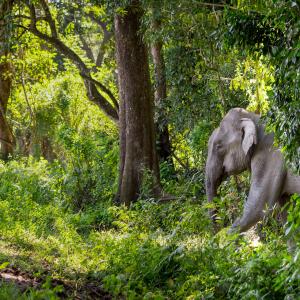 © WWF-UK
© WWF-UKMore Close Asian Elephant
The conservation status and population trend is classified as Endangered, and decreasing. The Asian elephant is the largest land mammal on the Asian continent. They inhabit dry to wet forest and grassland habitats in 13 range countries spanning South and Southeast Asia, including Malaysia, India, Nepal and China. More than two-thirds of an Asian elephant’s day may be spent feeding on grasses, but it also eats large amounts of tree bark, roots, leaves, and small stems. Asian elephants help to maintain the integrity of forest and grassland habitats. Their large size enables the creation of pathways through dense forests along which they travel, which then creates access for other wildlife. These clearings and gaps in the trees also let sunlight in to reach new seedlings, helping plants grow and the forest to regenerate naturally.
-
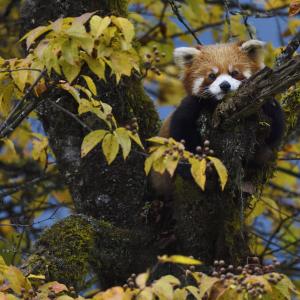 © Staffan Widstrand / Wild Wonders of China / WWF
© Staffan Widstrand / Wild Wonders of China / WWFMore Close Red Panda
The conservation status and population trend of the red panda is Endangered, and decreasing. Red pandas live in high altitude forests in the Eastern Himalayas in places like China, Nepal, and Bhutan. They spend most of their time in trees. Their semi-retractable claws help them move easily from branch to branch, and their long, bushy tails help them balance as they do so (as well as keeping them warm in the winter months). Primarily a herbivore, the name ‘panda’ is said to come from the Nepali word ‘ponya,’ which means bamboo or plant eating animal. Red pandas feed mainly on leaves and bamboo, but occasionally snack on fruit, insects, bird eggs and small lizards, too. Red pandas play a critical role in the conservation of the Eastern Himalayan broadleaf forest.
-
 © Shutterstock / rickyd / WWF
© Shutterstock / rickyd / WWFMore Close Koala
Conservation status and population trend of the koala is Vulnerable, and decreasing. Koalas are tree-dwelling marsupials found in southeast and east Australian forests and woodlands typically dominated by eucalyptus species and found along rivers and watercourses. The koala has a specialist diet, mostly limited to foliage of eucalyptus species, with occasional grazing of leaves of other plants. When koalas are on the ground, they walk slowly as they are poorly adapted to walking on the ground, however when disturbed koalas can break into a bounding gallop, moving at speeds of up to 30km per hour. Koala scats (poo) return nutrients to the forest floor, supporting a healthy ecosystem.
/
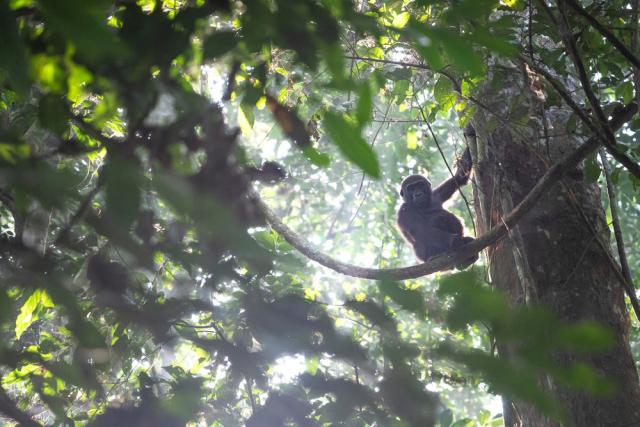
Why are forests so important?
- Forests aren’t just full of trees – they're teeming with all kinds of life. In fact, they’re home to an enormous 80% of the world’s land-based animals, insects and plant species, and around 300 million people.
- They provide people with timber, food, fuel, medicine, jobs and shelter, and are especially important for providing these to the world’s poorest.
- Yet no matter where you live, forests are crucial to every one of us. They recycle the air we breathe, and regulate rainfall and climate patterns around the world.
- Their ecosystem services even include water purification and carbon sequestration (storing carbon).
- Some of the products we use in our day-to-day life in the UK come from natural forests, like Brazil nuts, shea butter, and porchini mushrooms.
All of this makes forests our greatest asset in the fight against climate change. You could say forests are the life support system for our world.
-
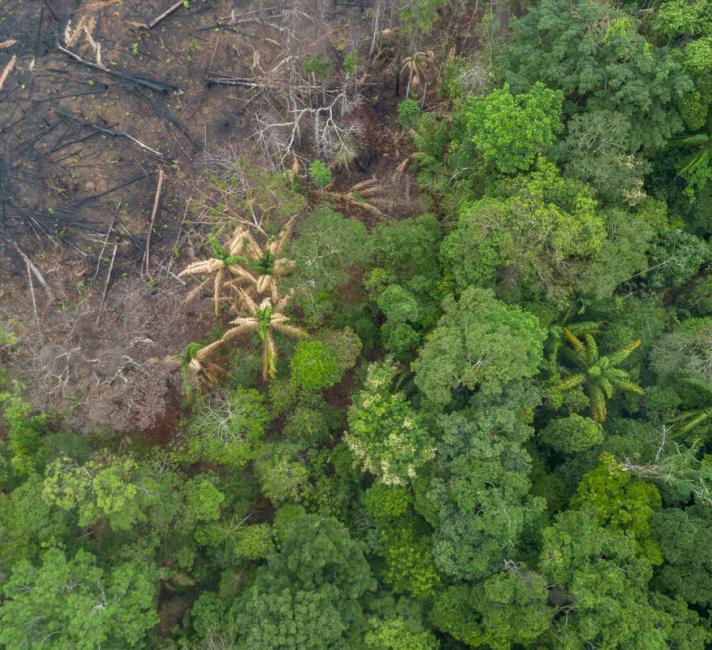 © Andre Dib / WWF-Brazil
© Andre Dib / WWF-Brazil -
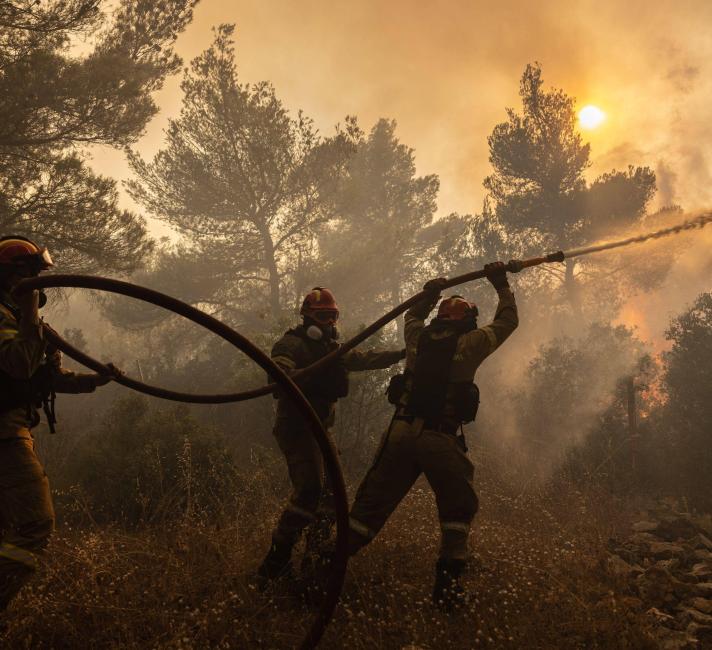 © Lefteris Partsalis / Xinhua / Alamy Liv News
© Lefteris Partsalis / Xinhua / Alamy Liv News -
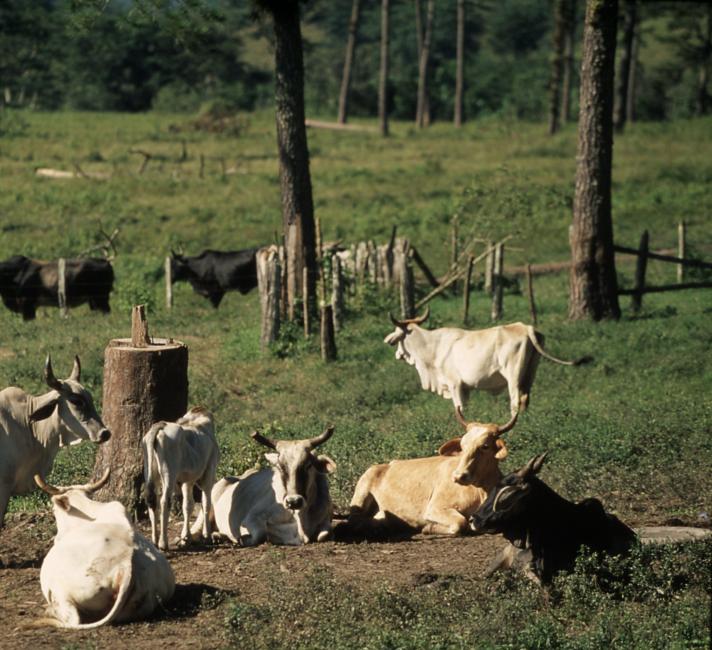 © Nigel Dickinson / WWF
© Nigel Dickinson / WWF -
 © Shutterstock / Denis Vrublevski / WWF
© Shutterstock / Denis Vrublevski / WWF
Challenges affecting forests
-
Deforestation and degradation
Huge swathes of the world’s forests are being destroyed every day. According to the UN, we lose 100,000 sq. km of natural forest globally every year – that's an area of forest the size of London lost every week, or roughly one football pitch every 2 seconds - usually for agriculture, for timber, or industrial development. Sometimes it’s legal, often it’s not. In the end, most of it is unsustainable.
-
Climate change
Forest overexploitation is also at the heart of the climate crisis – not just because degrading or cutting down forests adds to greenhouse gases (like CO2) in the atmosphere, but because forests themselves are vulnerable to global warming too. The warmer, drier conditions created by climate change are leading to further challenges like drought, disease, and more destructive wildfires.
-
Food and farming
Up to 80% of global deforestation has crops and livestock as a central cause. Rising demand for food – especially soya beans, palm oil and meat – has led to many forests being lost to unsustainable agricultural practices which convert forest to other land uses. Brazil has become the world’s biggest beef exporter, and the second-largest exporter of soya beans, which is mainly used to feed animals. That’s been disastrous for forests like the Amazon. In Borneo huge areas of peat swamp forests, where orangutans live, have been converted into plantations to produce palm oil – which ends up in our processed food and household products (crisps, soap, you name it). Our forests need food and commodity production to be sustainable and supply chains to be free from deforestation.
-
Unsustainable financial and trade systems
While a certain amount of public and private funds are spent towards the protection of forests every year, they are a tiny fraction of the amount that is needed to stop deforestation and restore the world’s forests. Right now, far more money is spent on practices that harm our forests, than on their protection or restoration. The underlying problem is that not enough value is placed on nature – it’s often seen as more economically viable to cut forests down than to protect them.
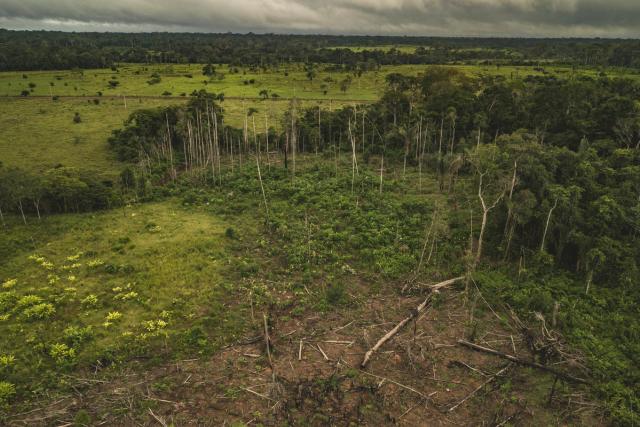
What is impacting forests?
Our forests are in crisis. Climate change, deforestation and damage from wildfires, in places like the Amazon, Congo and the rainforests of South East Asia are having devastating impacts for wildlife, water supply, food production, livelihoods and the stability of the global climate system.
In our largest rainforest, The Amazon, when forest is lost a vicious cycle becomes established. The more forest that is lost, the less rainfall is produced by the forest and drought and fire effects cause even more forest losses. This loop could cause the entire Amazon forest biome to reach a tipping point where it's lost to a state of permanent degradation.
On top of that, many surviving forests have been so damaged and degraded that the plants and animals that rely on them are threatened with extinction. Over time these remaining forests are being emptied of the wildlife that once called them home.
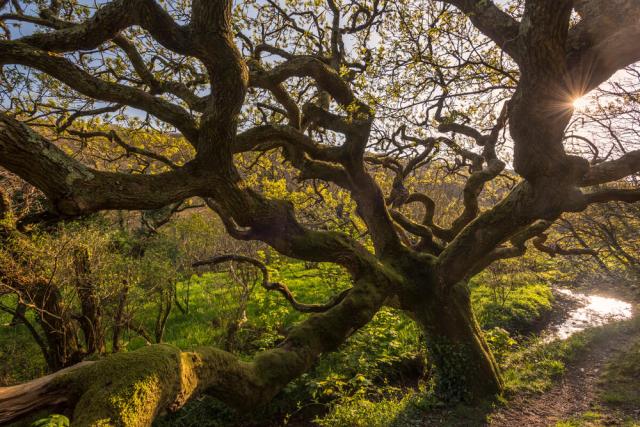
How can we help our forests?
- We need to stop financing the destruction of forests by changing the ways that businesses and financial institutions do business.
- We should support healthy forests in nations and territories where they are still found, protecting them and the biodiversity they are home to.
- We must urgently and carefully restore forests in places where they have been lost of severely damaged.
- We need to strengthen the land rights of Indigenous peoples and local communities, and reduce poverty, so that all forest peoples can benefit from and protect the forests in which they live, as we know that the forests that are doing best are often under their stewardship.
In November 2025, world leaders will gather in Brazil for COP30, the annual global climate conference. There, the UK government will have a crucial chance to take real action that will protect forests at home and around the world. Email your MP and demand that our leaders take this opportunity to follow through on their promises to protect forests.
You can also find out how you can support our work to tackle the global deforestation crisis head-on - focusing on the three most vital tropical forests in the world, across the Amazon, the Congo basin and Southeast Asia.
Forests we work in
-
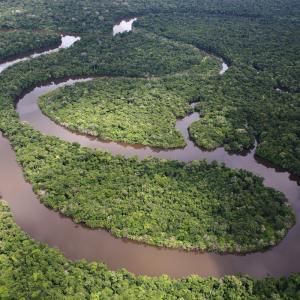 © Brent Stirton / Getty Images
© Brent Stirton / Getty ImagesMore Close The Amazon rainforest
The Amazon rainforest plays a vital role in sustaining life on our planet. Yet, this vast tropical biome and its inhabitants are fast approaching an irreversible tipping point.
Find out more -
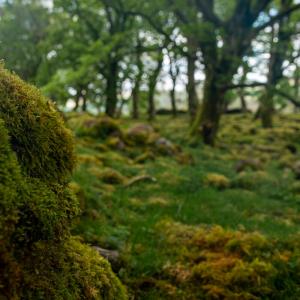 © Joseph Gray / WWF-UK
© Joseph Gray / WWF-UKMore Close UK Forests
The UK is one of the most nature-depleted nations in the world. This is reflected in the Yorkshire Dales, where pockets of native woodland and natural habitat are restricted to isolated fragments.
-
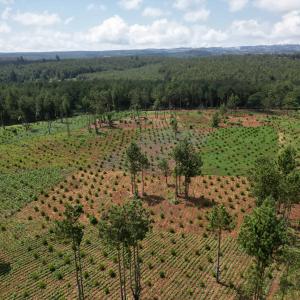 © WWF-Kenya
© WWF-KenyaMore Close The Kaptagat forest
The Kaptagat forest block in Kenya is an important carbon sink and livelihood source for communities, but this precious landscape faces significant threats.
-
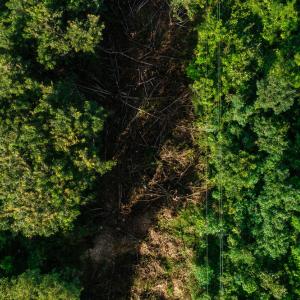 © Nyumbani Content Ltd / WWF-Tanzania
© Nyumbani Content Ltd / WWF-TanzaniaMore Close Tanzania’s coastal forests
Tanzania’s Pugu, Vikindu and Kazimzumbwi coastal forests make up one of the oldest surviving forests in the world, home to a diverse range of species. But this ancient habitat is under threat.
-
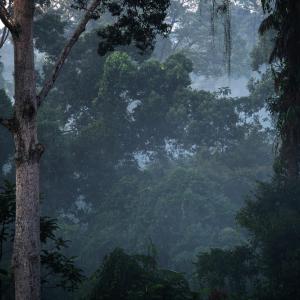 © Chris J Ratcliffe / WWF-UK
© Chris J Ratcliffe / WWF-UKMore Close Sabah state in Malaysia
Sabah state in Malaysia contains one of the oldest rainforests in the world, dating back 130 million years. But logging, fires and unsustainable palm oil production have released millions of tonnes of stored carbon into the atmosphere.
/
How we're helping forests
-
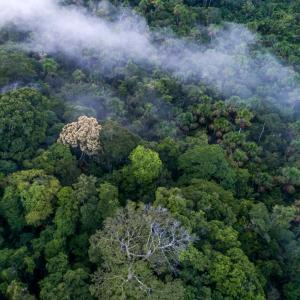 © Andre Dib / WWF-Brazil
© Andre Dib / WWF-BrazilMore Close Forest surveillance - Innovation against deforestation
Forest Foresight is an innovative AI-driven technology for preventing illegal deforestation before it begins. The AI technology reviews data like the physical features of an area, population density, and past forest cover. Once trained by this information, it reads real-time satellite images, detecting early deforestation predictors (such as expanding roads), and alerts local authorities to threats. All of this culminates in supporting local stakeholders in intervening in time to prevent deforestation, before irreversible damage is done.
Find out more -
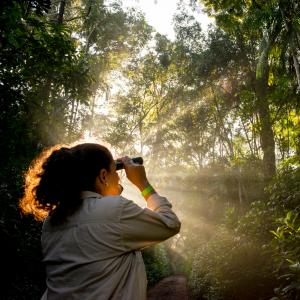
More Close Influencing policies in Brazil and Colombia
We constantly work with partners and governments to keep forests standing and halt climate change. See how we are helping.
Find out more -
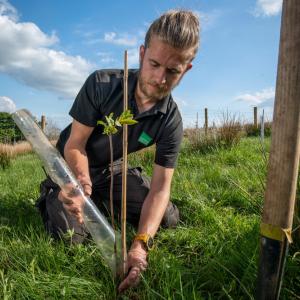 © Joseph Gray / WWF-UK
© Joseph Gray / WWF-UKMore Close Woodland restoration in the UK
We’re working with partners in the Yorkshire Dales on a project to restore ancient woodland and grasslands.
Find out more -
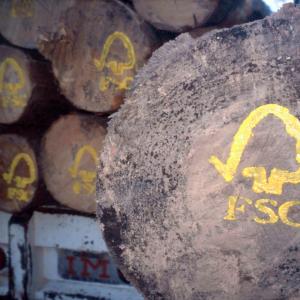 © N.C. Turner / WWF
© N.C. Turner / WWFMore Close Forest certification system
Forest certification involves inspecting and tracking timber, paper pulp and other forest products to ensure they've been harvested correctly.
Find out more -
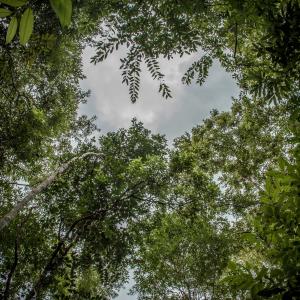 © Thippakone Thammavongsa - WWF-Laos
© Thippakone Thammavongsa - WWF-LaosMore Close The trillion trees venture: saving our trees
Here's our vision for a trillion trees to be restored, saved from loss, and better protected around the world by 2050.
Find out more -
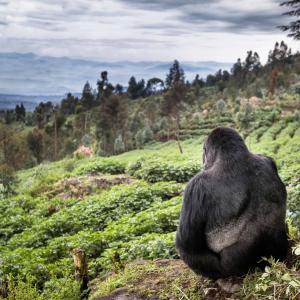 © naturepl.com / Christophe Courteau / WWF
© naturepl.com / Christophe Courteau / WWFMore Close A Treaty to halt and reverse nature loss by 2030
The ‘Kunming-Montreal Global Biodiversity Framework’ contains a series of goals, targets and measures to tackle the biodiversity crisis.
Find out more -
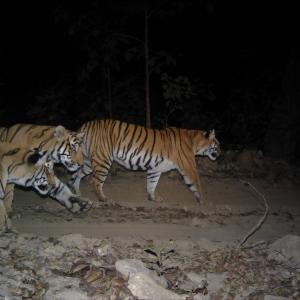
More Close A thriving wildlife corridor
Forest restoration work in Nepal lead to an expansion of tiger habitat that has helped to nearly triple tiger numbers in the area.
Find out more
/

Take action for our world
We also recommend
-
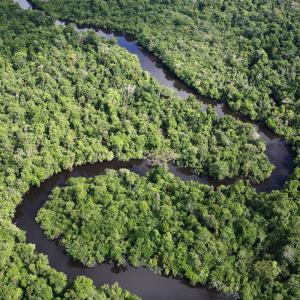 © Brent Stirton / Getty Images
© Brent Stirton / Getty ImagesForest pathways report
Read the report -
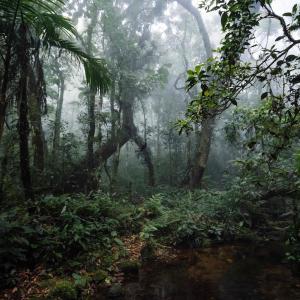 © Naturepl.com / Joao Burini / WWF
© Naturepl.com / Joao Burini / WWFTop 10 facts about forests
Forest facts -
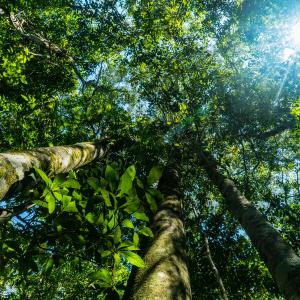 © Luis Barreto / WWF-UK
© Luis Barreto / WWF-UKTop 10 facts about the Amazon
Amazon facts -
 © ScotlandBigPicture.com/ WWF-UK
© ScotlandBigPicture.com/ WWF-UKTop 5 facts about UK Woodlands
UK Woodland facts
/